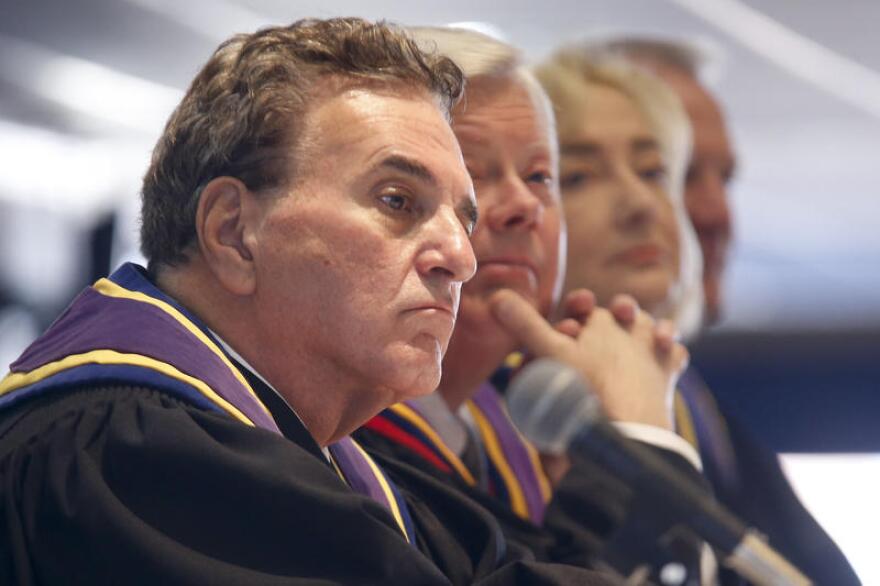The Pennsylvania Supreme Court heard arguments Tuesday over two laws that could affect workers in the city of Pittsburgh. One of the measures requires private employers to offer between three and five paid sick days a year, while the other creates new training rules for security officers in many larger buildings.
Local employers and business groups sued soon after Pittsburgh enacted the ordinances in 2015. Those organizations contend that under state law, Pittsburgh cannot burden the private sector with mandatory paid sick time and new training rules.
Courts have ruled that state law bars the city from imposing some regulations on private companies. In one case, a Common Pleas Court judge ruled that Pittsburgh’s home rule charter, which governs the city’s relationship with the state, did not give the city authority to impose a registration requirement on landlords.
But on Tuesday, city and union lawyers argued that other state laws allow local governments to adopt measures that promote public health and safety. They say the two Pittsburgh ordinances would do just that, by preventing sick employees from spreading disease at work and improving emergency preparedness in many buildings.
In Tuesday’s argument, Katchen Locke, an attorney for the Service Employees International Union, Local 32BJ, argued that the home rule charter itself says it does not preempt other state statutes. Several of those statutes, she said, require municipalities to ensure disease prevention, emergency preparedness, and building safety.
“It’s hard to imagine legislation would mandate something as complex, something as important as managing disasters” and then hamstring a city's ability to do so, Locke said.
The businesses’ lawyer, William Stickman, countered that “so many things are related in an indirect or downstream way to health.” But, he added, the home rule charter places strict limits on Pittsburgh’s authority to regulate the private sector.
Justice Max Baer questioned whether companies that operate in multiple jurisdictions should be forced to comply with multiple sets of rules.
Justice David Wecht, meanwhile, raised doubts that cities could advance health and welfare in the absence of new regulations that impact the private sector.
Neither of the disputed Pittsburgh laws have taken effect, pending a decision from the state's high court.
If upheld, the paid sick leave policy will require businesses with fewer than 15 workers to offer up to three sick days annually. Those businesses would be exempt from paying for time off during the first year of enforcement.
Larger employers would be required to offer up to five paid sick days a year as soon as the law goes into effect.
The new training rules would require security officers who work in many buildings that are 100,000 square feet or larger to complete emergency training by schools certified by the Pittsburgh Fire Bureau.
It’s unknown when the state Supreme Court will rule on the case.




